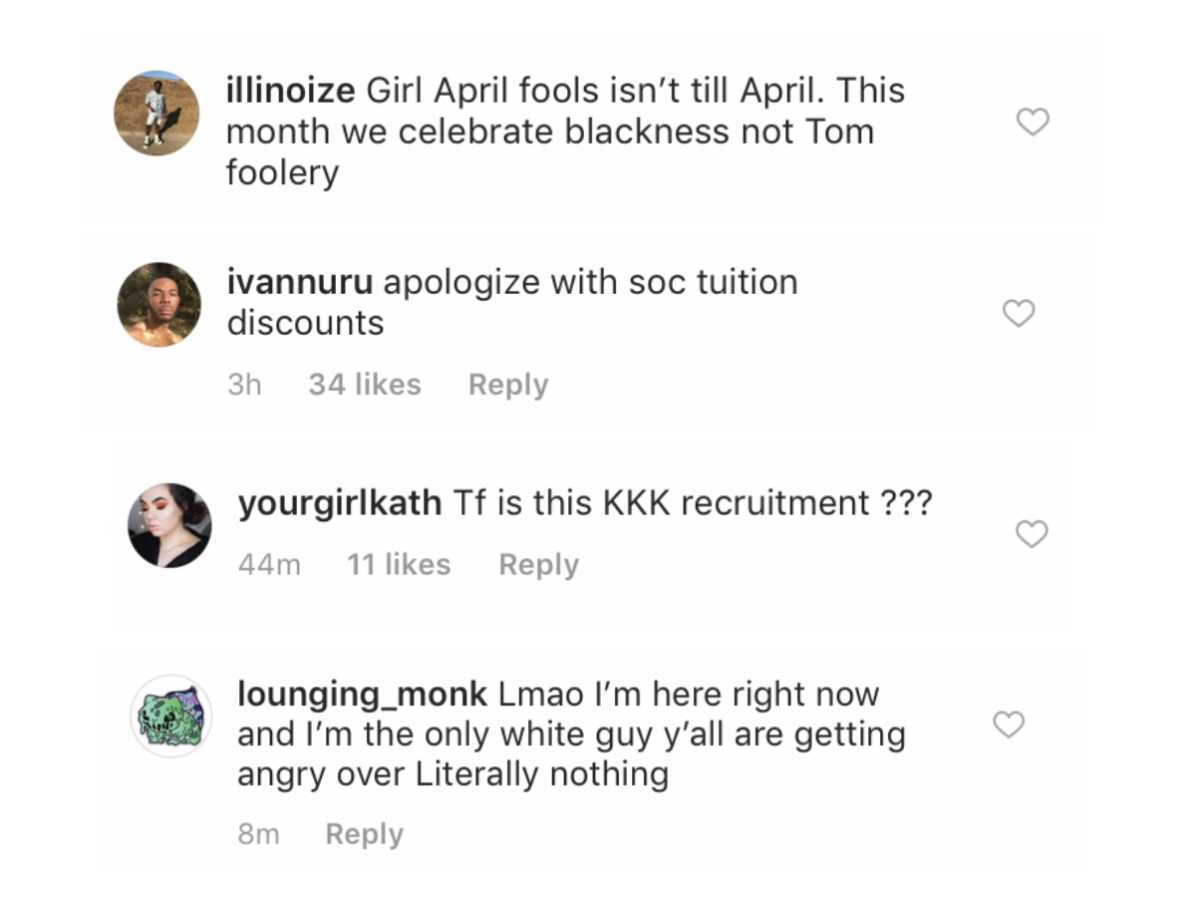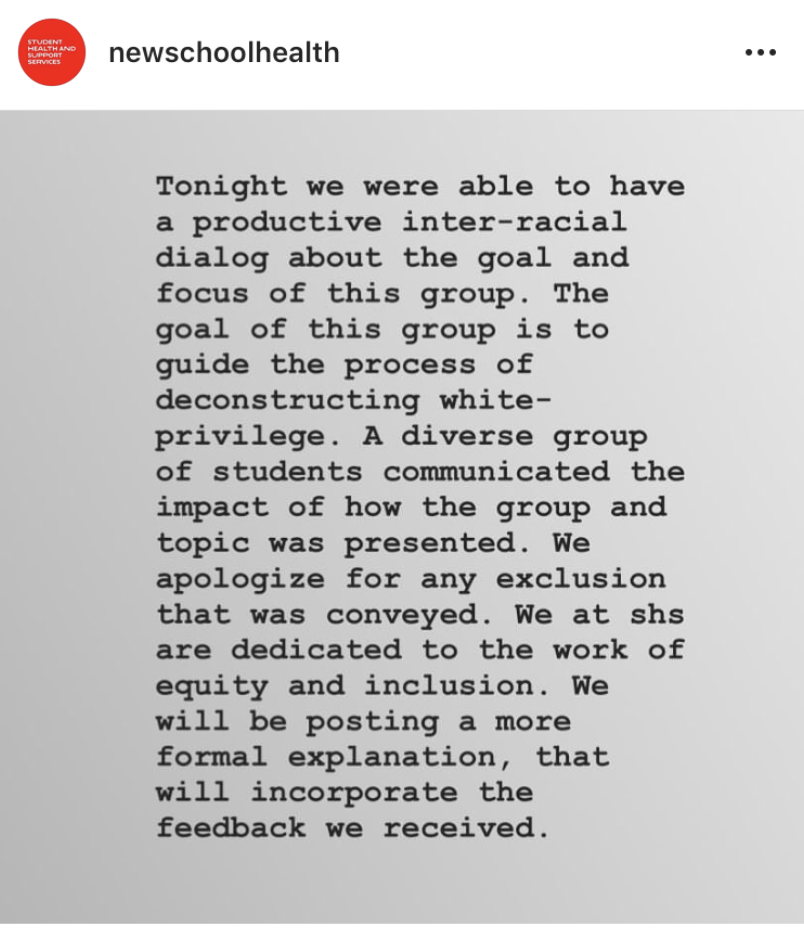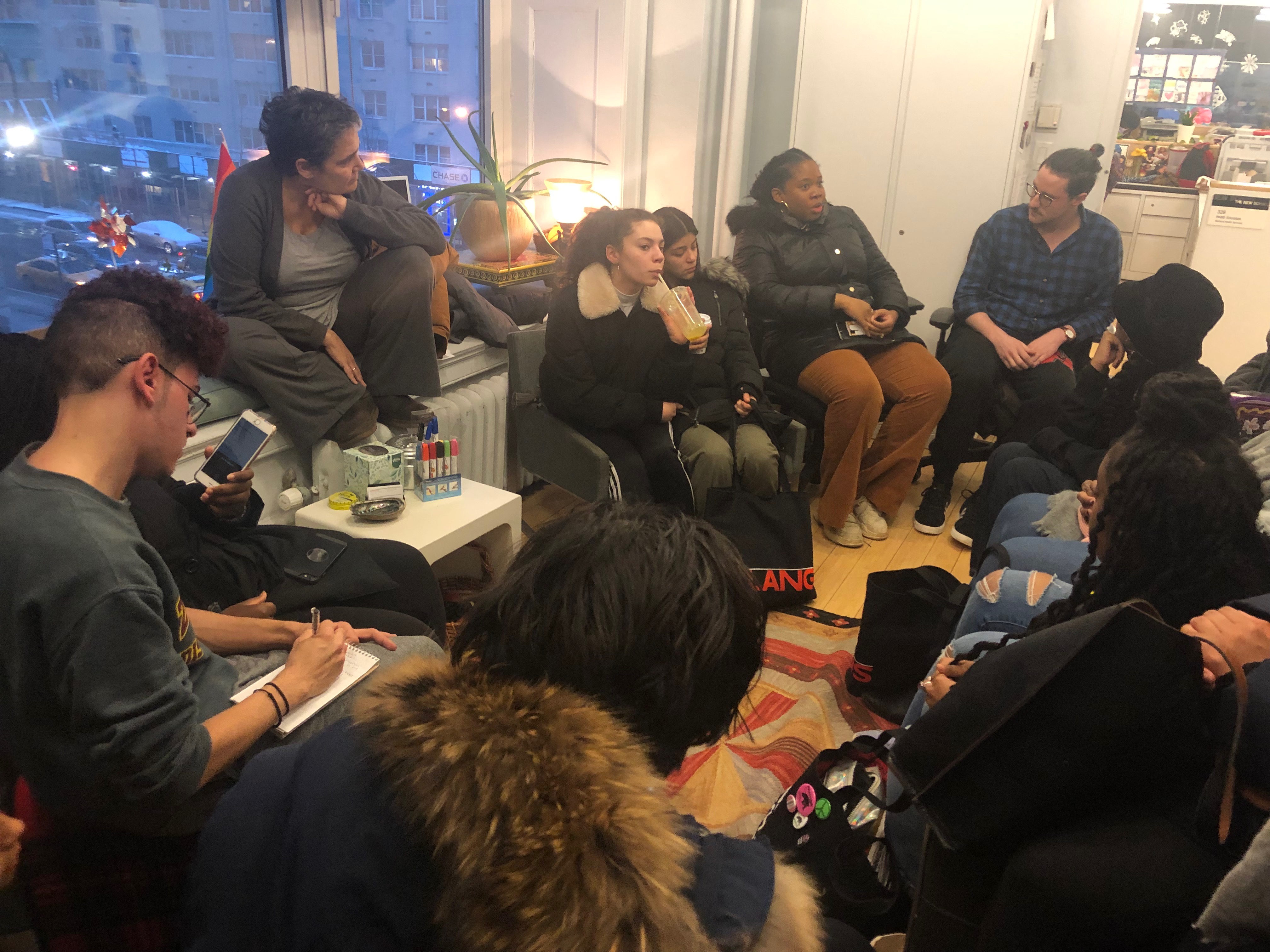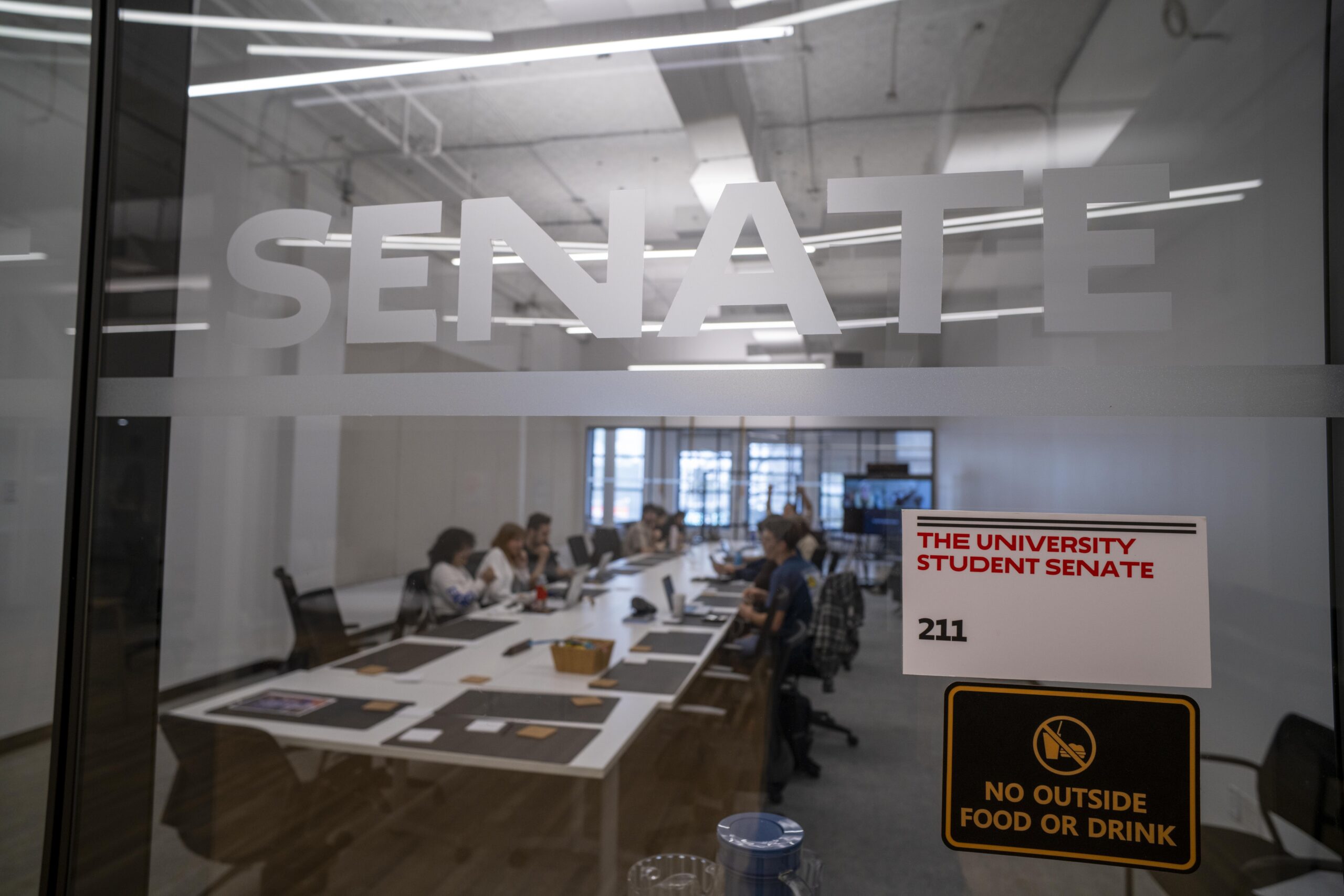Correction: A previous version of this story misidentified one of our interview subjects. They are Blu Gengo.
It is Black History Month, and a group meeting for “white identified students” was held at Student Health Services on Wednesday late afternoon.
The gathering, created and spearheaded by Tracy Robin, Assistant Vice President for SHS, and Bradley Heikes, a Student Success Advisor, incited a visceral reaction among many members of the student body.
The event, called “Exploring Whiteness,” was advertised on SHS’s Instagram account and on its website. The announcement of the event generated 300 comments from students expressing their disdain and questioning the validity of the meeting.

This outrage comes a few semesters after students of color at the New School advocated for a dedicated meeting space.
The meeting on Wednesday, Feb. 20, was the second official meeting of the group, and drew a crowd of more than 25 students, as the Instagram post was the first widespread announcement of “Exploring Whiteness.” The post described the event as a “supportive space for white identified students to explore whiteness from a social justice framework.”
The students, who were predominately students of color, expressed their initial reactions to the viral Instagram post as they flooded the SHS waiting room before the event began.
“I wanted to transfer. I am ready to go,” said Laiza Martinez, a first-year Photography student.
Aishamanne Williams, a first-year Journalism & Design student, said, “The New School, as a university, is a space to explore whiteness.”
Students were then placed into a small room that wasn’t able to accommodate the unexpected turnout. The students crowded onto a couch, shared seats with each other, or spread out and sat on the floor.
Right off the bat, students led the discussion and asked the leaders to clarify the expectations and objectives of the group.
The idea was to create a space for “learning about whiteness to become better allies for people of color, to educate, and dismantle white supremacy, white fragility, and white privilege,” said Heikes, the Student Success Advisor.
“The idea was creating an opportunity where there can be an affinity group where work can be done that wasn’t burdening people of color,” added Robin.
— Aishamanne Williams, a first-year Journalism & Design student
“The New School, as a university, is a space to explore whiteness.”
One student, Jonon Gansukh, asked the group leaders if they had any previous background in working in this field or if it was a new experience for them.
“I’ve been a therapist for 30 years, so sitting around and talking in groups is something I really know a lot about,” Robin said. However, she said she didn’t consider herself an expert on this particular subject matter.
“I work here as an advisor, but I’m getting my Masters in Social Work at NYU. So I’ve curated all the articles that we’re going to read [in the group] with classmates and instructors over there and I’ve been working with the language with some of my colleagues here,” Heikes said.
Blu Gengo, a first-year Literary Studies student, responded to these comments with skepticism. “You can’t educate with educators who don’t have experience with the problem. You’re speaking about ignorance and all of these issues,” Lonergan said. “But I don’t understand how you would be able to lend that knowledge if you don’t have that experience.”
Both Bradley and Tracy were unaware of the outrage taking place on social media while they were in the meeting. They explained they are not in charge of scheduling and posting content onto the SHS Instagram page.
At one point, the discussion focused on the term “whiteness” and how to address it. One white-identifying student chimed in on why he joined the group. “I was excited about a group about unpacking whiteness. It’s because in class when I’ve seen racist shit go down in some of my programs, which it does, I’ve struggled with how to have conversations about where I can intervene in that process,” the student said.
Another white-identifying student asked how “whiteness” was defined.
Ninoshkka Paul, a second-year Global Studies student, said, “White people created the term ‘whiteness.’ It wasn’t a term that came out of nowhere. When you talk about black and whiteness, that term came because of slavery and because your ancestors needed an ‘other.’ White people created the term whiteness and blackness to divide it. If you want to define whiteness, there’s no way to define it.”
When the leaders were asked what they planned on doing moving forward, they stated they would take all the input, and then turned the question to the students for feedback. The sentiment from many of the students was that the group should be suspended until they convene with people with more education on the issues they want to address, and with voices of color, especially those on campus.
After the discussion, Mica McGriggs, a Coordinator for Mental Health Equity at SHS, spoke about the event and its core objectives.
“The deconstructing of white privilege is the work of white folks. They kind of have to do that work. And I feel that the focus for black and brown people is to work on their own kind of healing, work on how do they kind of navigate all the atrocities we face historically and how do we move forward. We all have to engage in this work, but all of our jobs are going to be different. I think the intention of this group was for white students to do that process,” McGriggs said.
SHS deleted their controversial viral Instagram post late Wednesday night. Instead, the SHS Instagram page released a statement about the meeting, and said they plan to post a more formal statement soon. For now, the group has made no official comment on whether or not the group is suspended and/or dismantled.

The Black Student Union posted on their Instagram story that all students of color should report to the SOC Space Thursday afternoon to review the “Exploring Whiteness” event.
Clarke Johnson, a first-year student, attributed the event as another example of institutions, such as The New School, treating social justice as a “performative” act – paying lip service to the issues, without having the means to back it up. “Do I think it was tone deaf? Yes. Do I think there’s a way to fix this? Not without a complete start from the bottom, like get rid of it,” they said.







